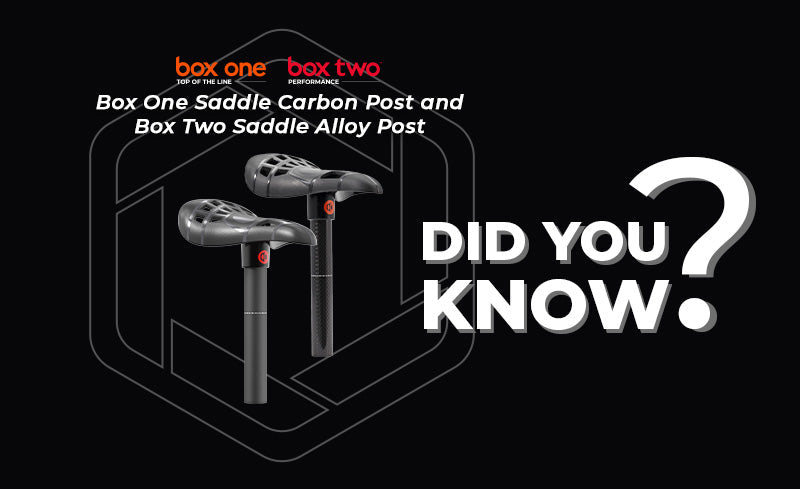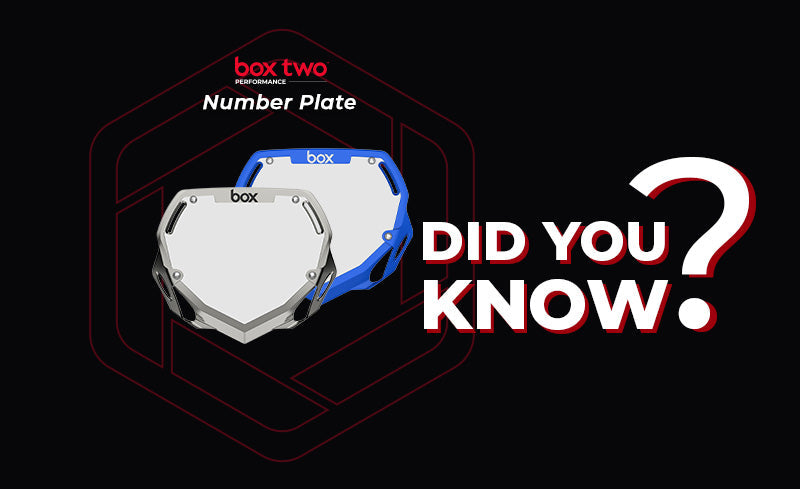Culture is one of today’s hottest business topics – and one of the hardest things to define and measure within an organization. That’s why, despite its widely recognized importance to business success, the topic of company culture remains ever difficult to raise and communicate both internally and externally.
Here at Box, company culture isn’t just a buzzword. It’s real and it matters, not only to the Box team, but to the whole Box community—our athletes, riders, partners, and ordinary customers all included. Culture extends far beyond the walls of a workplace and holds value to everyone involved with an organization. Here’s why culture at Box is critical to both the people behind the brand and to our audiences around the globe.
Culture lies at the heart of Box’s business model and brand identity. Our company culture that we have carefully developed and refined over years is the essence of who we are as a company and who we want to be as well as the driving force behind our vision to chart new courses in the BMX and MTB industries. It has and continues to guide Box’s mission of making forward-thinking, innovative components that connect man and machine. Box without its unique culture simply would not be the brand you know today.
There was a time not too long ago when Box lacked a clear culture and vision, leading to many costly errors and the loss of our customers’ trust, not to mention precious time. We had to completely overhaul our culture in order to take what we learned from these missteps early on, apply them in practice, and transform the company. It is no exaggeration to say that changing our culture saved us. So, what exactly is company culture?
What is company culture?
Company culture can be defined as the shared values, beliefs, goals, and practices of an organization. Values and behavior together create culture. It is evident in how an organization’s people interact with one another, how a team manages its projects, how leadership responds to a crisis, and simply how a workplace is decorated. For example, is the office bright and inspiring with a lively atmosphere, or is it sober and impersonal, for business and business only? It’s these small details that reveal a company’s culture.
Company culture encompasses a plethora of elements including work environment, company mission, leadership styles, values, ethics, goals, and expectations. Think of culture as the collection of characteristics that all together make a company what it is and distinguish one workplace from another. Culture is complex, multifaceted, and dynamic. Unlike a company’s mission, philosophy, or core values, culture evolves continuously over a company’s lifespan and can shift dramatically with growth and major changes. Culture is created through consistent and intentional behaviors, not press releases or policy statements.
A company’s culture may take form freely or may be purposely cultivated, largely depending on the directives of leadership. While culture naturally develops from the communication methods, decision-making processes, work expectations, and social environment unique to every company, some companies deliberately build a particular culture. They accomplish this by promoting a set of values that align with their philosophy, using these values as a guiding framework for all interactions, and clearly communicating their desired culture both internally and externally. Culture then becomes an inextricable component of the company’s identity and an objective in and of itself, not just a byproduct of decisions made over time.
Netflix is a great example of a company that has successfully cultivated a certain culture by establishing and communicating cultural values that not only align with the company mission but execute it. Netflix’s values are plainly spelled out in its company culture document: judgment, communication, curiosity, courage, passion, selflessness, innovation, inclusion, integrity, and impact. Employees are expected to uphold these values in every action and interaction, resulting in a collaborative, communicative, and successful organization with a well-honed culture. It’s no wonder that everyone wants to copy Netflix’s cultural manifesto.
Whether designed or organic, company culture guides the actions of all staff, determines the strength of a company’s relationships, and, ultimately, charts its future trajectory. It is the foundation upon which companies are built and by which they are limited. With a strong culture, employees understand what is expected of them and of their company as a whole and act accordingly, fully equipped to put their best foot forward. There is unity, cohesion, and minimal confusion. With a haphazard culture where everyone has their own set of values and priorities, it is exponentially more difficult to achieve company goals as a unit.

Why is company culture important?
Culture is key to company identity, growth, and recognition, not to mention employee happiness and productivity. Employees are much more likely to enjoy their work and work harder when their needs and values align with their employers. If they don’t mesh well with the culture and workplace dynamic, they’ll be less efficient, generally unhappy, and more apt to leave for another job. Prioritizing culture helps companies retain good employees and minimize turnover along with the associated costs of training new employees.
Culture affects all aspects of a business, from relationships and productivity to contract terms and employee benefits. It permeates every level of business operations, from strategic decisions at the very top down to routine internal communications. Honoring company culture in a consistent manner allows staff members to know what to expect and to feel comfortable in their roles within the web of organizational relationships.
In recent years, culture, engagement, and employee retention have been consistently among the top challenges facing businesses. And now with record numbers of workers quitting their jobs in search of more flexibility and more happiness as pandemic life recedes, company culture is arguably more important than ever. Many are rethinking what work means to them, how they are valued at their jobs, and how they want to spend their time. Companies with healthy cultures are much more likely to weather the storm–even come out stronger–than those with stale cultures unwilling to accommodate a changing workforce.
Beyond the employee experience, culture is also central to company identity and brand perception. A company’s culture is reflected not only in how management and employees interact with one another, but also in how they communicate with those outside the company. Are staff members honest with customers, prioritizing the truth even when it may not be the best thing for business? Or are they purposefully ambiguous in order to fish for a deal? Do they take responsibility for their own missteps, or do they deflect blame on someone else or even worse, the company as a whole? Values and attitudes guide behavior. A company’s internal culture manifests in its dealings with partners and customers, determining how the business is perceived from the outside.

What is the culture at Box?
The Box team believes we must love our brand wholeheartedly before our customers do. That is why Box leadership puts culture front and center, incorporating it in every aspect of the company’s operations. To us, a strong positive culture requires that all team members feel safe, heard, and supported, that they are able to express themselves openly and honestly, trust one another, receive recognition for their contributions, and feel part of something special.
On top of creating an environment where everyone feels empowered to speak up and make decisions, the Box family strives to be unique and find new and better ways of doing things. Taking calculated risks is encouraged. Creative thinking is at the center of everything we do. We nurture a culture of trust, creativity, and innovation through commitment to three core values: truth, clarity, and focus. These values are our promise to our customers of the kind of company we are committed to being each and every day.
Truth simply means telling the whole truth and nothing but the truth. Complete honesty can be very difficult to carry out in business and in life. No one wants to be the bearer of bad news and risk jeopardizing relationships. But lies, half-truths, and false promises eventually lead to a loss of trust, and, in the long run, honesty forges stronger relationships. At Box, we aim to be fully transparent and straightforward in our interactions with one another and our customers. We don’t conceal information when there’s an issue, and we don’t lie about our products or our abilities.
Clarity comes from knowing who we are and who we want to be. Clarity is evident in well-defined company and individual goals, clear communication, brand cohesion, and forward thinking. Uniformity in our story is vital to building customer trust and community. This is not possible without being honest and staying true to our values.
Focus is key to accomplishing our goals and giving our actions meaning. We value our time and our customers’ time and demonstrate this by consistently identifying what is important versus what is not so important. Team members are not afraid to speak up when they believe something does not align with Box’s vision. Focus ensures that people have a meaningful objective in mind.

Learning from our mistakes
How does all of this affect our customers? Our values shape not only our company culture but our product approach. Box’s mantra “Be Different” guides how we design and develop our products, translating into unique bike parts that stand out amongst a crowded industry and are recognized for their innovation and performance. Box’s focus is creating simple, reliable, and efficient components easy for riders of all ages and skill levels to use.
We did not always have such a clear vision. Before the inception of Prime 9, we devoted all of our efforts to creating a superior 11-speed drivetrain that could compete with the best in the industry. Needless to say, things didn't go as planned. In a rush to deliver as fast as possible, we skirted thorough testing and ended up with flimsy derailleurs prone to breakage. When we finally brought our 11-speed drivetrain up to par, 12-speed hit the scene, relegating our 11-speed to oblivion. Still, we followed the crowd, too scared to try something different. At the same time, our BMX components also suffered from inadequate testing and unreliable quality due to rushed testing. Bottom line: We were all speed and no direction.
After years of playing catch-up, we realized that if we wanted to survive, we had to redefine our mission. Now, Box carves its own path and offers customers an exciting third option. We don’t aim to have the most gears or the most sophisticated drivetrain on the market. We excel in creating simple, durable components that deliver unique performance and a memorable ride. Box recognizes that for many riders, less is more, and increasingly complicated setups are not always better or what people want. It’s true that we may not be able to compete with the big guys, but we don’t want to. We want to create something different, and that makes us who we are.

Company culture matters
Every company has a unique culture, and there is no single best culture proven to produce the best results. Companies of all different sizes and structures have inspiring cultures fashioned for their needs. Regardless of what kind of culture a company has and what values they champion, there is no doubt that company culture matters. Here at Box, we are proud of our culture, and that is because through the tireless efforts of our leadership and staff, we have developed a culture worth being proud of. We can say with all honesty that Box components are unique and that by staying true to our mission statement, we are making products we are proud of and changing the BMX and MTB industries.
Written By: Ashley Thomas




Comment
The values of our unique culture changes lives through hands on application-introduction to tools. to children. My family challenge involves school aged children using tools for the first time in bicycle assembly. My C.A.P.T.R., formulated while obtaining my Masters in Public Administration from North Carolina Central University, is a 4, 5, & 6 year old’ children’s assembly / bicycle race held in Cary, NC’s Carpenter Park on June, 24, 2023.. All participants of this Cognitive Assembly Pump Track Race get trophies.. 1st place participants in each age group get Box youth Bmx t-shirts.. We must all have a part in reducing childhood obesity and disease and get back to family outdoor exercise and fun! I think outdoor programs like my C.A.P.T.R. exercises are perfect for this positive effort. My complement is to Box Bmx / Box Components for providing the avenue to grow our culture here in NC to “be different”!